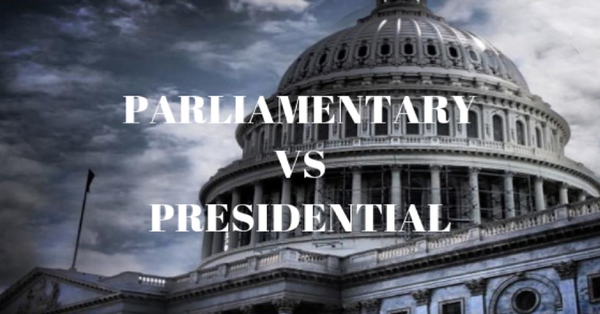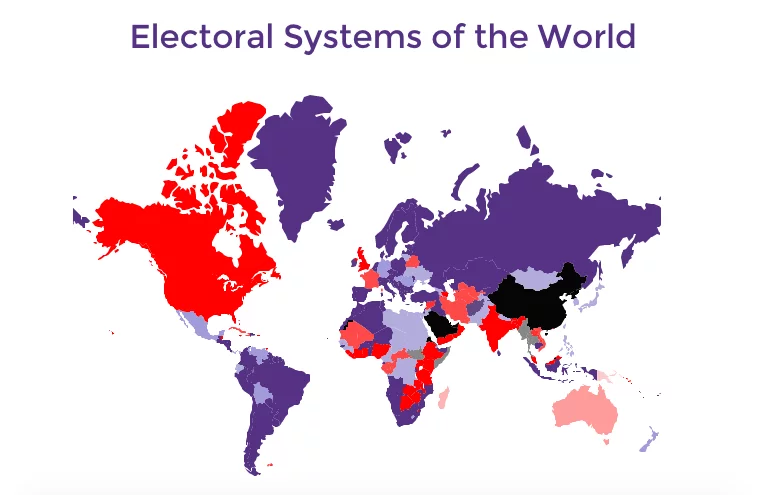Exploring the Differences Between Parliament and Presidential Systems
Explore the contrast between parliamentary and presidential systems of government. Learn about their key differences and similarities.

Comparative Analysis: Parliamentary vs. Presidential Systems of Government in Modern Politics
In the realm of governance and politics, two predominant systems have emerged to shape the state and politics of nations worldwide: the parliamentary system and the presidential system. These systems serve as the foundational frameworks for how countries are governed and how political decisions are made. As we delve into the world of contemporary politics, including the latest US political news and international political developments, it becomes imperative to understand the key differences between these systems. This knowledge not only helps us interpret political news today but also sheds light on the political campaign strategies and upcoming political events that unfold on the global stage.
Parliamentary System of Government
The parliamentary system of government is a widely adopted model, prevalent in countries such as the United Kingdom, Canada, Australia, and India, among many others. It embodies a fusion of the legislative and executive branches of government. Here are the key features of this system:
1.???? Executive Power: In a parliamentary system, the executive power is vested in the head of government, often referred to as the Prime Minister. The Prime Minister is typically the leader of the political party that commands the majority in the legislature.
2.???? Separation of Powers: Unlike the presidential system, the parliamentary system lacks a strict separation of powers between the executive and legislative branches. The executive (Prime Minister and Cabinet) is drawn from and accountable to the legislature (parliament).
3.???? Accountability: The Prime Minister and the Cabinet are directly accountable to the parliament. If they lose the support of the majority in the legislature, they may be removed through a vote of no confidence, which can trigger early elections.
4.???? Flexibility: Parliamentary systems are often characterized by greater flexibility, as the government can adapt quickly to changing circumstances. This adaptability can be advantageous in times of crisis.
5.???? Political Campaign Strategies: Political parties in parliamentary systems focus on winning seats in the legislature, as the party with the majority forms the government. Campaigns emphasize party platforms and the selection of parliamentary candidates.
Presidential System of Government
The presidential system of government is notably practiced in the United States, along with several countries in Latin America and Africa. It is characterized by a clear separation of powers between the executive and legislative branches. Here are the key features:
1.???? Executive Power: In a presidential system, executive power is vested in a President who is elected separately from the legislature. The President serves as both the head of state and head of government.
2.???? Separation of Powers: This system strictly separates the executive, legislative, and judicial branches of government to provide checks and balances. Each branch operates independently.
3.???? Stability: Presidential systems often provide greater stability as the President serves a fixed term and cannot be easily removed by the legislature. Impeachment is a lengthy and challenging process.
4.???? Political Campaign Strategies: In presidential systems, political campaigns revolve around electing an individual President. Candidates emphasize their personal qualifications, policy positions, and leadership qualities. Voters directly choose the President, and legislative elections are separate.
Comparative Analysis
While both systems have their merits and drawbacks, they have significant implications for governance and politics. In the US, recent political news today often revolves around the presidential system, including the strategies employed in presidential campaigns and the balance of power between the executive and legislative branches.
In contrast, parliamentary systems in countries like the UK are marked by greater legislative-executive integration, making it crucial for political parties to secure a parliamentary majority to govern effectively. This results in different campaign strategies, with parties emphasizing their ability to build a legislative majority and the competence of their leader to become Prime Minister.
International Political News and Upcoming Political Events
Understanding these differences is essential when analyzing international political news and upcoming political events. The choice of governance system often shapes a nation's foreign policy, alliances, and approach to international issues. For instance, parliamentary systems may lead to faster foreign policy decision-making due to their adaptability, while presidential systems may provide stability in times of global uncertainty.
The Evolution of Political Systems
It's important to note that the choice between parliamentary and presidential systems isn't static; it can evolve over time. Many countries have experienced shifts in their political systems, often in response to changing societal needs and challenges. For instance, some countries have transitioned from parliamentary to presidential systems or vice versa as part of broader political reforms.
These transitions can be driven by a desire for more effective governance, stability, or a response to crises. Recent political news often highlights such transitions in various parts of the world, emphasizing the ongoing evolution of political systems as nations seek the best way to address their unique political and social contexts.
Impacts on Governance and Policies
The differences between these systems have significant impacts on governance and policy-making. In parliamentary systems, the executive branch is intimately tied to the legislature, leading to a faster decision-making process and greater legislative influence on policy outcomes. Conversely, presidential systems often involve a more adversarial relationship between the executive and legislative branches, which can lead to gridlock and slower policy implementation.
This divergence is particularly relevant in today's world politics news, where we see varying degrees of governmental effectiveness across countries. Understanding the underlying political system is crucial for interpreting the reasons behind these variations and predicting how governments will respond to emerging challenges.
Adaptation and Learning from Each Other
As we analyze political news today, we can observe that countries often learn from each other's political systems. Successful governance practices in one system may be adopted or adapted by countries with different systems. This cross-pollination of ideas can lead to innovative approaches to governance.
For instance, some countries with presidential systems have introduced elements of proportional representation in their legislatures to encourage coalition-building and reduce gridlock. Conversely, parliamentary systems have sought to enhance the accountability of the executive by implementing fixed-term limits for Prime Ministers.
The Role of Political Campaign Strategies
Political campaign strategies also vary significantly between parliamentary and presidential systems. In presidential systems, the focus is on individual candidates and their personal qualities, making elections highly personalized. Candidates often need to build a broad coalition of voters.
In contrast, parliamentary systems place a stronger emphasis on party platforms and the ability of a political party to form a stable government. This requires parties to appeal to a wide range of voters and often leads to more coalition-based politics, where multiple parties work together to achieve legislative majorities.
In the ever-evolving landscape of international political news and upcoming political events, understanding the differences between parliamentary and presidential systems is vital. These systems have profound impacts on governance, policy-making, and political campaign strategies, shaping the trajectory of nations and influencing the world of state and politics.
As we navigate the complexities of contemporary politics, recognizing that no single system is universally superior allows us to appreciate the diversity of approaches to governance. It also encourages us to explore innovative ways in which political systems can evolve and adapt to meet the changing needs and challenges of our globalized world, ultimately contributing to more effective and responsive governance across the globe.
What's Your Reaction?





















